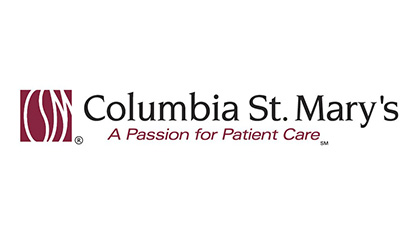
MILWAUKEE, WI – When a patient is sick, tired or stressed during a doctor’s visit, they may forget what the doctor said or prescribed. Columbia St. Mary’s is addressing this issue by strengthening the patient-doctor partnership and giving their more than 300,000 patients secure online access to doctor’s notes after a visit. Called “OpenNotes,” the health care provider is the first in Wisconsin to launch convenient, round-the-clock access to their doctor’s notes, instructions, next steps, prescriptions and test orders through Columbia St. Mary’s secure access patient portal, CSMConnect.
“Patients are familiar with going online to access their medical record for general medical information such as confirming an upcoming appointment or viewing lab results,” said Dr. Bruce McCarthy, president of Columbia St. Mary’s Physician Division. “But doctor’s notes are the thread that ties together many
pieces of information in the medical record. OpenNotes could profoundly change the way people engage with their doctor and manage their care.”
Dr. McCarthy heard of the OpenNotes concept in theory years ago. “I became more intrigued as my own mom aged and started to develop signs of dementia,” he said. “She would go to her doctor and when I asked how the visit was, she would always say ‘the doctor says everything is fine’ while I knew that wasn’t the case.”
“It’s great to see Columbia St. Mary’s take this step and offer physician’s notes to their patients,” said Steve Downs, chief technology and information officer at the Robert Wood Johnson Foundation. “It’s crucial at this state to have a set of early adopters whose experience will help pave the way for others.”
A national study in 2010 funded by the Robert Wood Johnson Foundation, the nation’s largest philanthropy organization devoted exclusively to health and health care, tested the OpenNotes concept with 105 primary care physicians and more than 13,000 patients during a year-long voluntary program. Patients reported:
- Having better recall after visits
- Feeling more in control of their care
- Better communication and collaboration with their doctor
- Feeling better educated
- Taking medications more effectively
- Preventing important mistakes
- Sharing their notes with family, friends and health professionals
The findings were published in the Oct. 2 issue of the Annals of Internal Medicine.
“When this study began it was a fascinating idea in theory,” says Risa Lavizzo-Mourey, MD, president and CEO of the Robert Wood Johnson Foundation. “Now it has been tested and proven. The evidence is in: Patients support, use and benefit from open medical notes.
These results are exciting – and hold tremendous promise for transforming patient care.”



